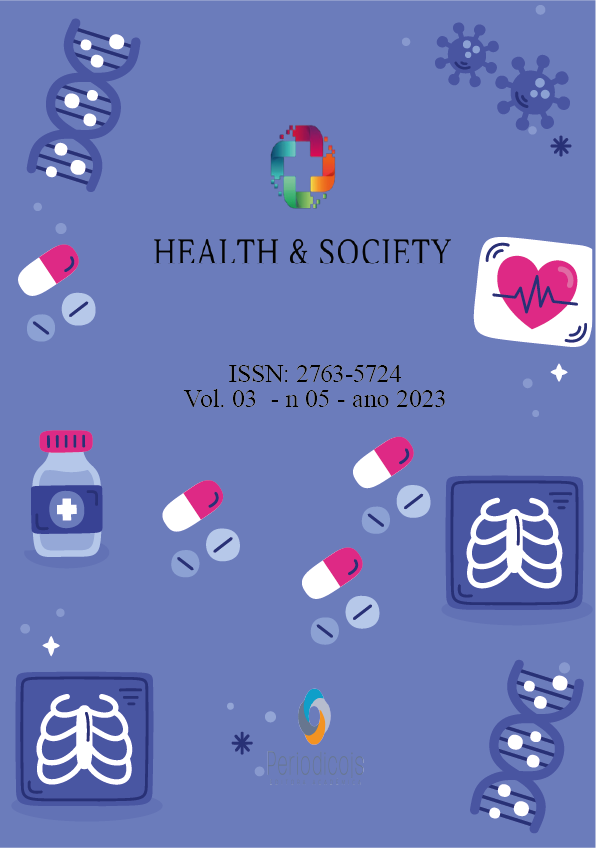Resumo
Doctors and other health professionals have gained wide prominence in society since the dawn of civilization. However, with the COVID-19 pandemic, the whole society has noticed the wide importance of the work of doctors, nurses and other health professionals. In this aspect, it is valuable to discuss the relationship between physician and patient and the aspects that impact on this issue. Thus, the general objective of this work is to analyze the variables and considerable aspects existing in the relationship between physician and patient and the existing challenges. The research methodology used was qualitative research. Thus, data collection was performed with bibliographic research in national databases. This work concludes with the premise that there are several challenges in the relationship between doctor and patient, among these as the patients and difficult families, the long working hours and precarious working conditions, the disregard of the humanity of the doctor and his consideration as a kind of machine and not as a professional who is, above all, a human being.
Referências
CASTILIAN, L. M.; WHABA, L. L. The emotions of the physician and the implications for clinical practice. Psychol. USP, no. 31, 2020.
EICHBAUM, Q. G. Thinking about thinking and emotion: the Metacognitive approach to the Medical Humanities that Integrates the Humanities with the Basic and Clinical Sciences. Perm J., v. 18, n. 4, p. 64–75, 2014.
FELSTEAD, A. et al. Conceiving, designing and trailing a short-form measure of job quality: a proof-of-concept study. Ind Relat J., v. 50, n. 1, p. 2–19, 2019.
GALVÃO. J. Management of emergency and emergency services: strengths and weaknesses. Journal of Integrated Nursing – Ipatinga: Unileste, v. 6, n. 2, Nov./Dec. 2013.
GRANTER, E et al. Extreme work/normal work: Intensification, storytelling and hypermediation in the (re)construction of ‘the New Normal’. Organization, v. 22, n. 4. p. 443–56, 2015.
GRANTER. E. et al. Multiple Dimensions of Work Intensity: Ambulance Work as Edgework. Work Employ Soc. v. 33, n. 2, p. 280-97, 2019.
GREENFIELD, G. et al. Patient-physician relationships in second opinion encounters: the physicians’ perspective. Social Science & Medicine, v. 75, n. 7, 1202-1212, 2012.
HOLMAN, D. Job types and job quality in Europe. Hum Relat. v. 66, n. 4, p. 475– 502, 2013.
HUMPHRIES, N. et al. Failing to retain a new generation of doctors: qualitative insights from a high-income country. BMC Health Serv Res. v. 18, n. 1, p. 144, 2018.
HINCHEY, S. A.; JACKSON, J. L. A cohort study assessing difficult patient encounters in a walk-in primary care clinic, predictors and outcomes. J Gen Intern Med v. 26, n. 6, p. 588-94, 2011.
KOVÁCS, M. J.Suffering of the health team in the hospital context: caring for the professional caregiver. The World of Health, São Paulo, p.420-429, 2010.
LORENZETTI, R. C. et al. Managing difficult encounters: understanding physician, patient, and situational factors. American Family Physician, v. 87, n. 6, p. 419-425, 2013.
RIESS, H. et al. Empathy training for resident physicians: a randomized controlled trial of a neuroscience-informed curriculum. J Gen Intern Med. v. 27, n. 10, p. 1280– 1286, 2012.
SALDANHA, S.V.; BADCH, A.R.; CRUZ, L.R.; The Clinical Psychologist and the multidisciplinary team at Santa Cruz Hospital. Rev. SBPH, Rio de Janeiro, v. 16, n. 1, jun. 2013.
SANCHEZ-REILLY, S. et al. Caring for oneself to care for others: physicians and their self-care. The journal of supportive oncology. v. 11, n. 2, p. 75, 2013.
STREET, R. L.; HAIDET, P. How well do doctors know their patients? Factors affecting physician understanding of patients’ health beliefs. Journal of General Internal Medicine, v. 26, n. 1, p. 21-27, 2011.
STEINMETZ, D.; TABENKIN, H. The “difficult patient” as perceived by family physicians. Fam Pract v. 18, n. 5, p. 495-500, 2001.

Este trabalho está licenciado sob uma licença Creative Commons Attribution 4.0 International License.
Copyright (c) 2023 Francisco Lúcio Sátiro Maia Pinheiro





